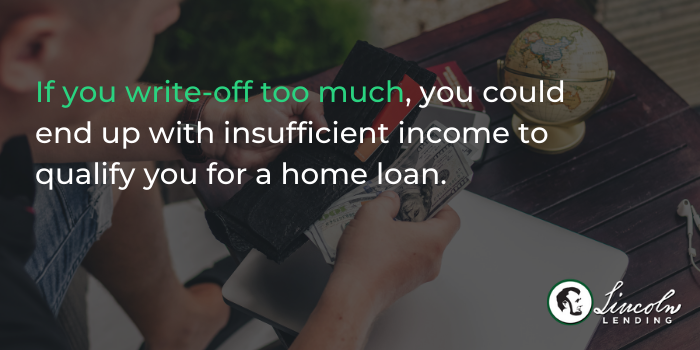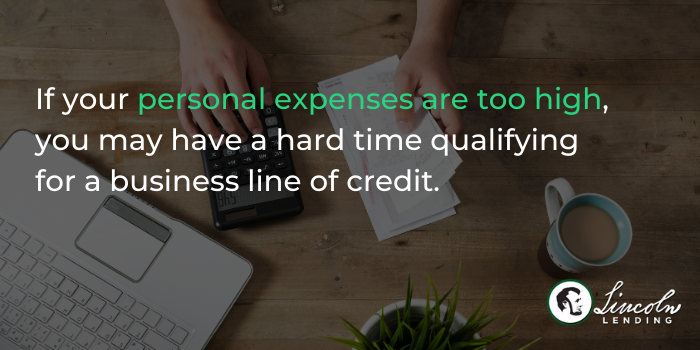When you own a business or are self-employed, the financial decisions that you make for your business can impact your personal expenses as well.
If you’re debating whether you should write-off cars, “toys,” and other debts as business expenses to save on your taxes, first consider how it could affect your Oklahoma home loan eligibility. If you write-off too much, you could end up with insufficient income to qualify you for a home loan.

1. Adjusted Gross Income
If you’re self-employed and applying for a home loan, lenders are only allowed to use your adjusted gross income (AGI). Your AGI is your total income from sources such as wages, investment income, and retirement distributions, less your deductions and write-offs. For loan qualifications, AGI is usually averaged over the past two years.
Calculating AGI can get complicated, so your lender will need to see two years of tax returns — both business and personal — to accurately calculate the income that they can use to qualify you for a loan.
What if you’re a conventional W2, salaried employee and you own a side business? Your lender can use your “day job” salary and then either add profit or subtract losses from your side business income, whichever is applicable.
2. The Impact of “Toys” on Cash Reserve
If you’re preparing to buy a home, it’s prudent to hold off on large, non-essential purchases until after you receive pre-approval for a home loan. (This is true for everyone, not just self-employed folks!) Your monthly payments for “toys” like boats, jet skis, RVs, or a new car increase your debt obligation, which can negatively affect your ability to qualify for a home loan.

One caveat is that payments for non-essential items don’t count against your income if you have proof that your business or someone else has made the payments from a separate checking account (one without your name on it) for the past twelve months. If, at any point, you made a payment personally, rather than through a business account, then it is likely that the debt will be included in your debt to income ratio. Holding a high ratio of debt to income may make it difficult to qualify for your desired home loan.
3. Qualifying for a Line of Credit
Many business owners rely on a business line of credit for liquidity to cover operating expenses. To qualify, business owners need to provide lenders with their company’s revenues and profits, financial ratios, professional experience, and personal credit. Having a low personal net income could affect whether or not you can qualify a line of credit.
Just like any loan, lenders believe that a borrower’s potential for defaulting on a line of credit increases with his or her debt level. Lenders need to feel confident that you will be able to repay your debt even if your business struggles financially. If your personal expenses are too high, you may have a hard time qualifying for a business line of credit.

Explore Your Options
Always talk to your tax advisor before making and accounting for big personal purchases because they could have implications on your ability to qualify for a home loan.
As soon as you start thinking about buying a home, begin speaking with your lender. While he or she can’t give you specific financial or tax advice, a lender can coach you on how business decisions could impact your ability to qualify for a home loan.
Just click the link below to schedule a free, no-obligation meeting with one of our Loan Officers today.


